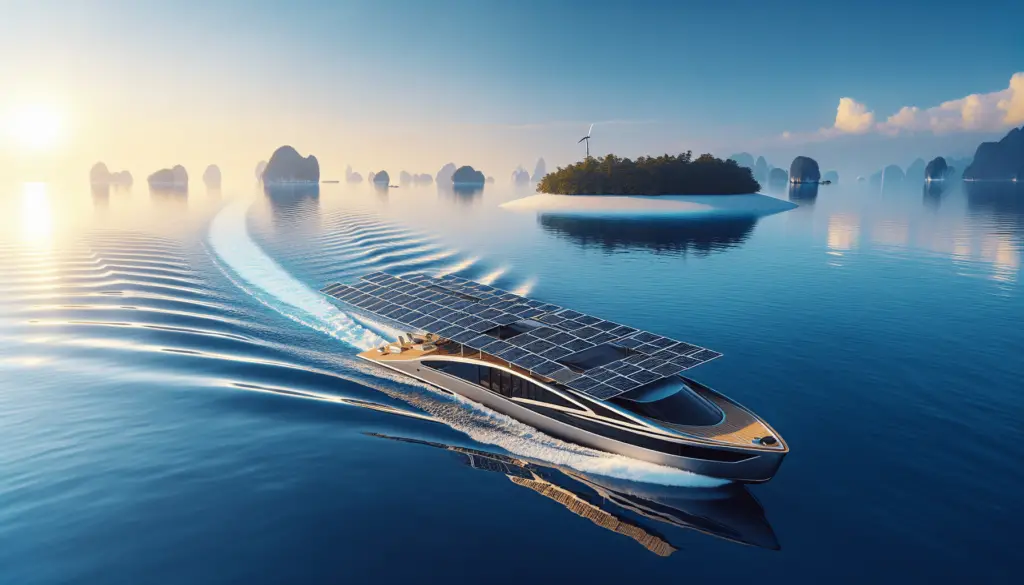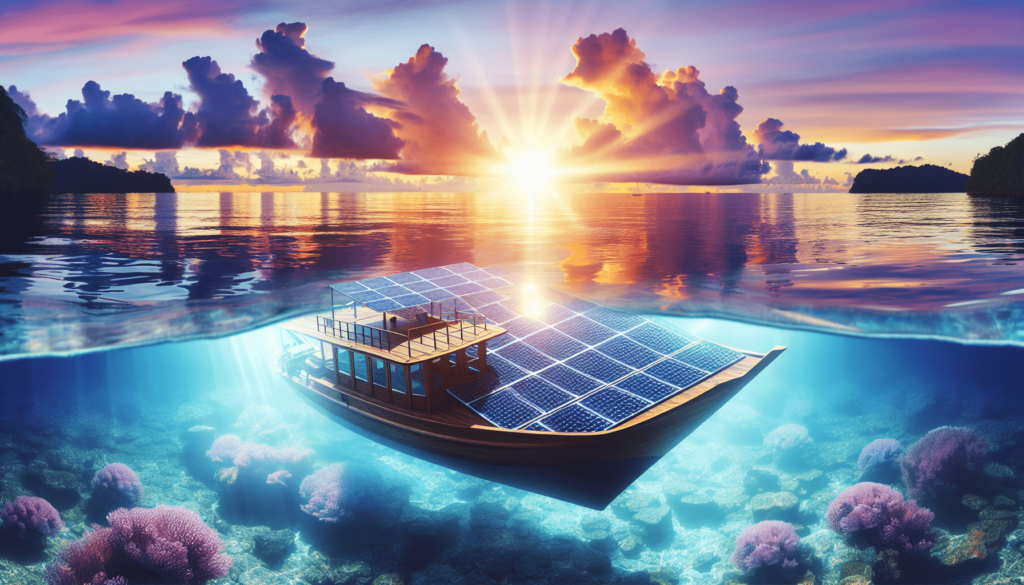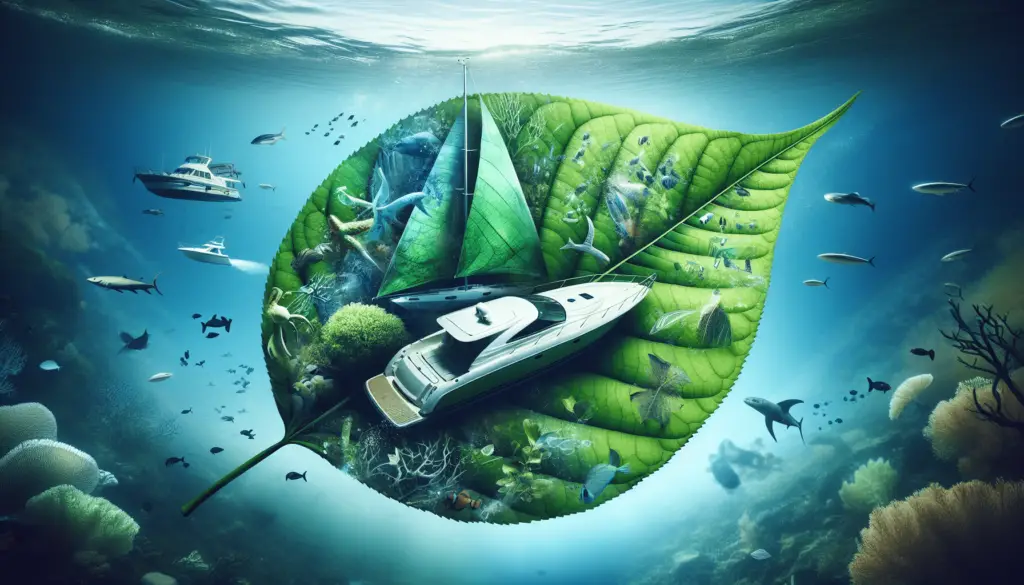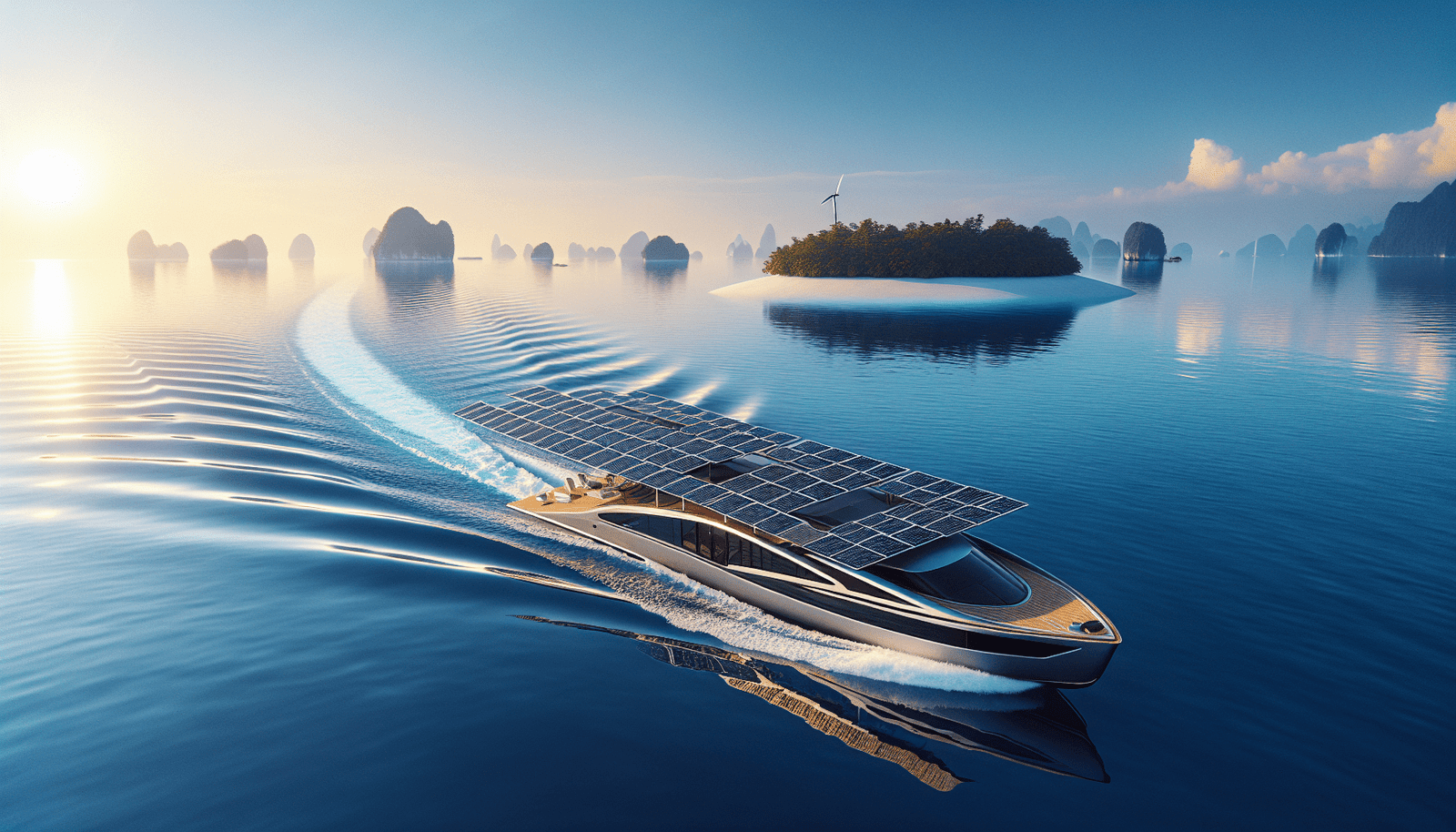Getting out on the water is truly one of life’s greatest pleasures, but like all activities, it comes with responsibilities. “The Importance Of Sustainable Boating Practices” is an enlightening read that underscores our responsibility as boating enthusiasts to maintain the ecological balance of our water bodies. Detailed within, you’ll find ways to boat responsibly, minimizing harm to aquatic life and preserving the serenity of our oceans, seas, rivers, and lakes for generations to come. The sustainability of our hobby heavily depends on us, so it’s time you understood how to make your boating adventures more eco-friendly.

Understanding Sustainable Boating
Hello there! Hold on tight as we take you on a marine adventure where we’ll dig deep into sustainable boating. Picture this: unspoiled marine life, purer water bodies, and less pollution. That’s the outcome we aim to achieve through actions powered by sustainability.
Defining sustainable boating
So you are probably wondering, “what exactly is sustainable boating?” Simply put, sustainable boating entails employing practices and behavior that minimize the negative environmental effects of using and maintaining vessels. It includes everything from the use of eco-friendly fuels to regular boat maintenance and waste management, conservation of marine wildlife, and the promotion of educational programs concerning sustainability. Let’s move forward and see more about the journey towards sustainable boating.
Historical context of boating
When we trace back the history of boating, the importance of this activity in the conduct of trade, exploration, fishing, or relaxation becomes evident. Boats were made from all sorts of materials, the most common being wood. With the passage of time, the types of materials used have evolved, and so has the technology employed in running them. And while this progression brought many benefits, it’s accompanied by several challenges – top of this list is environmental degradation.
Current state of boating practices
Fast forward to the modern era, specifically in terms of the current state of boating practices. Unfortunately, many of these practices contribute to environmental harm, primarily due to dependence on fossil fuels, improper disposal of waste, disturbance of marine life, and use of harmful cleaning products. Nonetheless, as awareness regarding these unfavorable effects grows, more and more people are shifting towards sustainable boating.
The Environmental Impact Of Boating
We cannot underestimate the environmental consequences of boating. The blue expanse that you enjoy during your nautical life is suffering enormously.
Marine life and ecosystems
For marine life, boats and their activities pose many threats. Propellers can cause injury or death to species, while the noise pollution disrupts the communication and navigation of marine animals. The waste and oil spillage from boats also degrade their habitats.
Water quality
Our boats, especially those using fossil fuels, have a serious impact on water quality. The fuels, chemicals, paints, and cleaning agents used on boats are often harmful, causing water pollution that endangers aquatic life and even human health.
Marine debris
Ever cared to know where does all the waste from our boats go? Plastic waste, discarded fishing gear, and other garbage, often known as marine debris, end up in our waters, harming marine organisms and ecosystems.
Boat Maintenance And Sustainability
If the effects of boating on our environment feel overwhelming, don’t despair! Here’s how you can make a positive change.
Use of eco-friendly products
The first baby step towards a sustainable boating practice is to choose eco-friendly products – opt for biodegradable cleaning supplies that do not leech harmful chemicals into the water.
Regular maintenance and checks
Being responsible for your boat’s health is as important as being responsible for your own. Regular maintenance reduces the risk of damaging oil or fuel leaks. Make sure you’re working with sealed components and up-to-date spill control equipment.
Effective waste management
Lastly, managing waste effectively is crucial. Don’t just toss waste overboard. Store it properly until you can dispose of it at the appropriate facilities ashore.
Fuel Efficiency In Boating
Knowing your fuel use and how to reduce it can make a significant dent in your environmental impact.
Importance of fuel efficiency
More efficient fuel use implies fewer emissions and pollutants. It not only keeps our air and water cleaner but also benefits you by decreasing fuel costs.
Techniques for improved fuel efficiency
Simple things like maintaining optimal speed, not overloading your boat, and regular engine checks can improve your fuel efficiency.
Types of sustainable fuels
Then there’s the choice of fuel itself. Sustainable fuels, like biofuels, are the future — they are renewable, and their use drastically reduces greenhouse gas emissions.

Boat Design And Materials With Sustainability In Mind
Sustainable boating isn’t just about changing habits—it’s also about innovation in design and materials.
Innovative materials for boat construction
A shift towards renewable and recyclable materials for boat construction could drastically reduce the environmental footprint. Think bamboo decking or recycled plastic bottles for upholstery!
Design considerations for sustainability
Design also matters – hull shape can affect fuel efficiency, while onboard systems for waste management or renewable energy can also minimize impact.
Renewable energy powered boats
Boats powered by renewable energy like wind, solar, or even hydrogen are paving the way. No fuel? No problem!
Sustainable Fishing Practices
For all the fishing enthusiasts out there, your sustainability efforts can significantly contribute to preserving aquatic life.
Minimizing bycatch
By using specific gear or changing practices, fishers can minimize the capture of non-target species — a significant threat to marine biodiversity.
Respecting closed seasons and areas
Respecting fisheries management measures like closed seasons and areas helps maintain fish stocks and habitats.
Using selective fishing gear
Selective fishing gear allows specific sizes and species to be targeted, reducing the impact on marine ecosystems.

Responsible Boating Behavior
Your behavior on water plays a major role in sustainable boating.
Observing speed limits
When you observe speed limits, you’re doing more than just keeping yourself safe – you’re also reducing fuel usage, noise, and the risk of collision with marine life.
Avoiding sensitive areas
Steer clear of sensitive habitats and ecosystems, like sea grass beds, coral reefs, or areas with nesting seabirds. Your visit can cause irreparable damage.
Respecting marine wildlife
Avoid incidents with marine wildlife. Keep your distance — enjoy their beauty without interrupting their lives.
Education And Awareness For Sustainable Boating
Spreading awareness and knowledge plays a fundamental role in promoting sustainable practices.
Role of boathouses and marinas
Marinas and boathouses could function as hubs for the promotion of sustainable boating practices by providing facilities for waste disposal, pushing for eco-friendly products, and implementing green practices.
Impact of education and training
Educating boaters on the ecological impacts of their activities can drive behavior change. Training them on proper practices is an essential part of any sustainable boating strategy.
Promotion of sustainable boating rules
By implementing and promoting regulations that prioritize sustainability, we can make sustainable boating the norm, rather than the exception.

Regulations And Policies That Support Sustainable Boating
Rules and regulations shape our boating practices to a large extent.
International maritime laws
Such laws often address waste management, pollution prevention, and wildlife protection. Adhering to them helps preserve marine environments.
National boating regulations
National regulations vary but often focus on equipment and practices to minimize environmental harm.
Enforcing and respecting laws
Adherence to these laws is a crucial component of sustainable boating. Enforcement agencies must ensure compliance, and boaters should do their part by following guidelines.
The Future Of Sustainable Boating
We are at an exciting junction where technology, trends, and a keen interest in sustainability are framing the future of boating.
Emerging trends and technology
Whether it’s electric boats, waste-to-fuel technologies, or AI-powered conservation tools, the future of sustainable boating is bright.
Potential challenges and solutions
Challenges will come – cost issues, technological limitations, or lack of awareness. But as long as we remain committed to finding and implementing solutions, sustainable boating can become a reality.
Role of community and industry initiatives
Community and industry groups must play an active role in promoting sustainable practices, advocating for regulations, and supporting research and development in this sector.
In conclusion, sustainable boating is more than just a trend. It’s a conscious choice we need to make, a commitment to the marine environment we love so much. It’s about leaving a legacy of cleaner, healthier, and more vibrant coastal and marine ecosystems for future generations to enjoy. Together, let’s make waves in the right direction!

